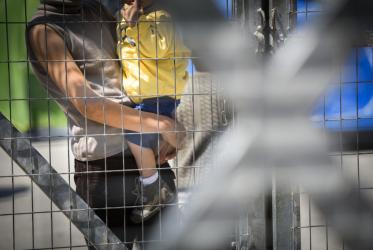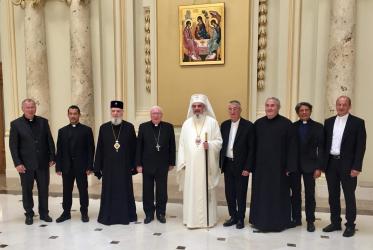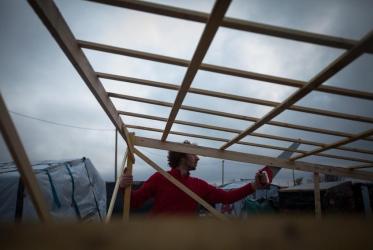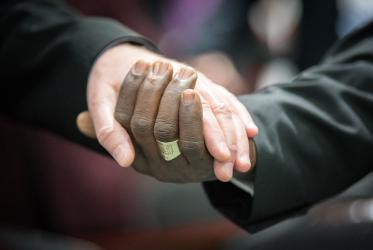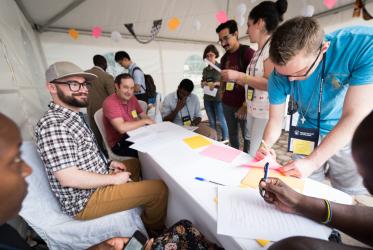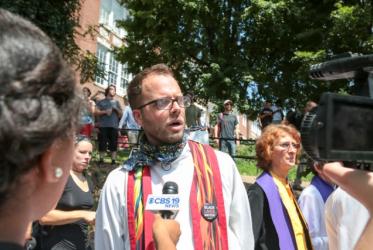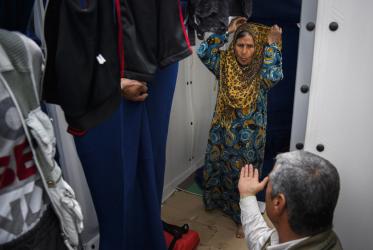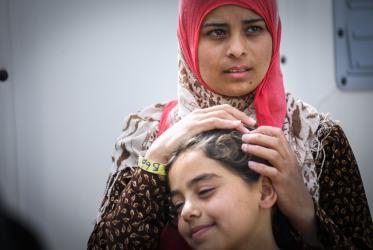Displaying 121 - 140 of 277
Creating a better future for Syrian-Armenian youth
29 March 2018
‘Sokoni’ transforms marketplace into mission
13 March 2018
WCC invites participation in #WithRefugees campaign
01 March 2018
Show up in fight against racism, is white American pastor’s plea
14 February 2018
#WCC70: Churches as “freedom agents”
12 February 2018
#FaithOverFear: WCC helps support openness towards refugees
08 February 2018
Konrad Raiser shares ecumenical journey of transformation
06 February 2018
Not just numbers, displaced people need to share their stories
01 February 2018
